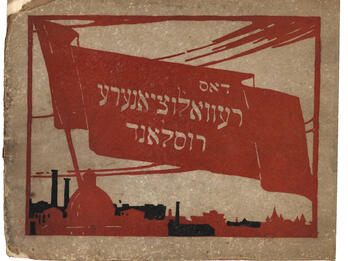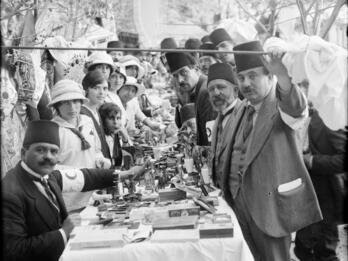Address to the Jury
Gentlemen of the jury, we have been in public life for twenty-seven years. We have been hauled into court, in and out of season—we have never denied our position. Even the police know that Emma Goldman and Alexander Berkman are not shirkers. You have had occasion during this trial to convince yourselves that we do not deny. We have gladly and proudly claimed responsibility, not only for what we ourselves have said and written, but even for things written by others and with which we did not agree. Is it plausible, then, that we would go through the ordeal, trouble and expense of a lengthy trial to escape responsibility in this instance? A thousand times no! But we refuse to be tried on a trumped-up charge, or to be convicted by perjured testimony, merely because we are Anarchists and hated by the class whom we have openly fought for many years. [ . . . ]
Gentlemen of the jury, most of you, I take it, are believers in the teachings of Jesus. Bear in mind that he was put to death by those who considered his views as being against the law. I also take it that you are proud of your Americanism. Remember that those who fought and bled for your liberties were in their time considered as being against the law, as dangerous disturbers and trouble-makers. They not only preached violence, but they carried out their ideas by throwing tea into the Boston harbor. They said that “Resistance to tyranny is obedience to God.” They wrote a dangerous document called the Declaration of Independence. A document which continues to be dangerous to this day, and for the circulation of which a young man was sentenced to ninety days prison in a New York Court, only the other day. They were the Anarchists of their time—they were never within the law. [ . . . ]
Gentlemen of the jury, we respect your patriotism. We would not, if we could, have you change its meaning for yourself. But may there not be different kinds of patriotism as there are different kinds of liberty? I for one cannot believe that love of one’s country must needs consist in blindness to its social faults, to deafness to its social discords, of inarticulation to its social wrongs. Neither can I believe that the mere accident of birth in a certain country or the mere scrap of a citizen’s paper constitutes the love of country.
I know many people—I am one of them—who were not born here, nor have they applied for citizenship, and who yet love America with deeper passion and greater intensity than many natives whose patriotism manifests itself by pulling, kicking, and insulting those who do not rise when the national anthem is played. Our patriotism is that of the man who loves a woman with open eyes. He is enchanted by her beauty, yet he sees her faults. So we, too, who know America, love her beauty, her richness, her great possibilities; we love her mountains, her canyons, her forests, her Niagara, and her deserts—above all do we love the people that have produced her wealth, her artists who have created beauty, her great apostles who dream and work for liberty—but with the same passionate emotion we hate her superficiality, her cant, her corruption, her mad, unscrupulous worship at the altar of the Golden Calf.
We say that if America has entered the war to make the world safe for democracy, she must first make democracy safe in America. How else is the world to take America seriously, when democracy at home is daily being outraged, free speech suppressed, peaceable assemblies broken up by overbearing and brutal gangsters in uniform; when free press is curtailed and every independent opinion gagged. Verily, poor as we are in democracy, how can we give of it to the world? We further say that a democracy conceived in the military servitude of the masses, in their economic enslavement, and nurtured in their tears and blood, is not democracy at all. It is despotism—the cumulative result of a chain of abuses which, according to that dangerous document, the Declaration of Independence, the people have the right to overthrow. [ . . . ]
But whatever your decision, the struggle must go on. We are but the atoms in the incessant human struggle towards the light that shines in the darkness—the Ideal of economic, political and spiritual liberation of mankind!
Credits
Published in: The Posen Library of Jewish Culture and Civilization, vol. 7.




